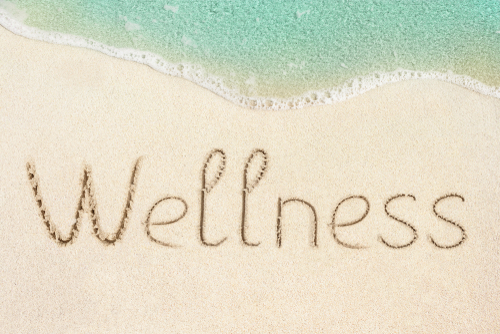Wellbeing, a vital yet often overlooked element of life, impacts how we feel, perceive, and engage with the world around us. It’s a multi-dimensional concept that encompasses physical, mental, and social health. The challenges of today’s fast-paced world can sometimes push our wellbeing to the sidelines. However, maintaining and improving our wellbeing is not as complex as one might think. This article provides practical steps you can take to enhance your wellbeing and ensure a more balanced, vibrant life.
1. Prioritising Physical Health
The first step towards improved wellbeing is taking care of our physical health. Regular exercise is a crucial aspect of this. It helps maintain a healthy weight, wards off chronic diseases, improves mood, and enhances overall life expectancy. Aim to integrate a variety of activities into your weekly routine, such as strength training, cardiovascular exercise, and flexibility workouts. Remember, it’s not about engaging in extreme regimes, but regular, moderate activity.
2. Nutrition
Nutrition plays a paramount role in maintaining and enhancing our wellbeing. It provides the foundation upon which our physical health is built, influencing everything from our immune function and disease susceptibility to our mood and cognitive abilities. A balanced, nutrient-dense diet supports all bodily functions – from the energy needed for daily activities to the essential building blocks for cellular repair, growth, and development. What we eat can significantly affect our cardiovascular health, the robustness of our immune system, and the health of our bones and muscles.
Moreover, nutrition has a profound impact on our mental wellbeing. Emerging research is revealing the powerful connection between diet and mental health, with certain foods rich in omega-3 fatty acids, B-vitamins, and antioxidants showing promising effects on mood and cognitive function. Consuming a diet low in processed foods and high in fruits, vegetables, lean proteins, and complex carbohydrates can enhance our mental clarity, mood, and overall mental health.
Nevertheless, our relationship with food is also crucial to our wellbeing. A healthy diet is not about strict limitations or depriving oneself of the foods you love. Instead, it’s about feeling good, having more energy, and stabilising your mood. It’s about striking a balance that feels nourishing and sustainable, reinforcing a positive connection between food, body, and mind. Therefore, nourishing our bodies with a balanced, varied diet is a powerful way to care for our health, promoting both physical vitality and mental wellbeing. Through mindful nutrition, we lay a strong foundation for a life of optimal wellbeing.
3. Mental Wellbeing: Nurture Your Mind
Mental wellbeing is as important as physical health. Our emotional state greatly affects our thoughts, behaviours, and interactions with others. Cultivate a positive mindset by practicing mindfulness and meditation, which help reduce stress and anxiety levels. Reading, painting, gardening, or any hobbies that interest you can also serve as an effective mental break.
Ensure to maintain a healthy work-life balance. Overworking can lead to burnout, negatively impacting your mental health. Remember, it’s okay to take a break and step away from your responsibilities occasionally. Lastly, don’t hesitate to seek professional help if you’re struggling with your mental health. It’s okay to ask for support.
4. Social Connectivity: Building Meaningful Relationships
Our social interactions contribute significantly to our wellbeing. Foster strong, meaningful relationships with family, friends, and colleagues. Regularly check-in with loved ones, engage in social activities, and, if possible, participate in community events.
Remember, it’s not about the quantity but the quality of relationships that matter. Authentic, supportive relationships bring us joy, provide comfort during tough times, and can even contribute to a longer lifespan.
5. Learning and Personal Growth
Life is a journey of continuous learning and growth. Engaging in new experiences, learning new skills, or picking up a new hobby can contribute to our sense of purpose and satisfaction. This also helps us keep our minds sharp, improves our adaptability, and enhances our self-esteem. Whether it’s learning a new language, picking up a musical instrument, or understanding more about a subject that intrigues you, every new learning experience adds to your wellbeing.
6. The Power of Gratitude and Positivity
Research has shown that practicing gratitude can improve your wellbeing, enhance sleep quality, and even strengthen the immune system. Start with a simple routine, such as listing three things you’re grateful for each day. This practice shifts your focus from life’s stresses and disappointments to the positives, fostering a happier outlook on life.
To summarise:
Wellbeing is more than just a lack of illness; it’s about leading a balanced, fulfilling, and contented life. By prioritising our physical and mental health, eating well, nurturing relationships, embracing continuous learning, and cultivating a positive mindset, we can significantly improve our wellbeing.
Remember, it’s not about massive leaps but small, consistent steps towards a healthier, happier you. The journey towards wellbeing is unique for everyone, so take time to discover what works best for you and incorporate these habits into your daily life. With time and patience, you’ll notice an uplifting shift in your wellbeing, setting the stage for a more enriched life experience.
In recognition of World Wellbeing Week we are offering 25% off our Flavoured CBD oils. Just use Wellness25 at checkout.

